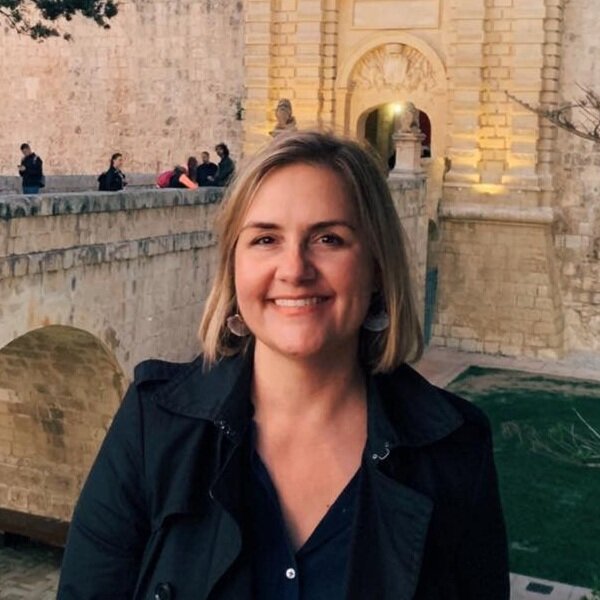Mobile therapy
/Sometimes to distract myself from the fact that I'm exercising, I listen to a podcast. (My thighs are so gullible! They fall for it every time.) A month or two ago, I listened to an On Being episode with the always fabulous host, Krista Tippett, interviewing Dr. Sylvia Boorstein (who is part wise Jewish grandmother, part therapist, part Buddhist teacher). She had some insightful comments that really resonated with me about reacting and responding as parents on those tough days and moments.
Dr. Boorstein: I tell people — I tell people that I could have the most profound equanimity and I am two words away from losing it completely. Then they say, "What are those two words?" I'd say, "Well, you have to understand that first the phone has to ring. Ring, ring and you pick up the phone and a voice says, "Hello, Ma?" and [if] it doesn't sound right.
. . .
Wise effort and the difference between "Can I care?" vs. "Am I pleased?" (though she talks about younger children in the example below, I think it applies well to older kids, too)
Ms. Tippett: Let's talk about this core insight that suffering — and, again, we're acknowledging that parenting is the greatest loss of control we ever suffer — that suffering results from struggling with what is beyond my control, that idea that our minds get in conflict with our experience and that's where suffering comes from, not so much from the realities themselves, but how we struggle with them. How do you think that applies to this?
Dr. Boorstein: Well, I just remembered actually just before we came out here this evening. I was sitting backstage and I remembered I was on a flight last Friday, and there was a family of five traveling with me. And everything is progressing well; it wasn't a terribly long flight. Near the end of the flight, the two- or three-year-old, she just fell asleep and now she's awakened and it's late in the afternoon. Probably her naptime is way off. She not only woke up, but she woke up and she's beside herself and crying and flailing in the way of three-year-olds. I watched these two parents and they were fabulous. Her mother was completely just consoling, quietly talking to her, not losing her equanimity at all. I was marveling at it. I thought it was wonderful.
You know, sometimes you see much more upset parents. This parent was not upset. Then by and by after a little while, the dad over here said, "Pass her to me." So they changed children. She passed this one back to him. And then he — behind me — spoke to her in such a kindly way, and slowly, slowly she pulled herself together. I just so admired their parenting skills. I admired it because, first of all, the child calmed herself down. They didn't whiz themselves up and create more suffering for themselves. They also didn't create more suffering for the whole plane because, you know, sometimes when a child is getting upset and the parent becomes all upset, then you feel pulled into it.
Ms. Tippett: Right.
Dr. Boorstein: But somehow these parents' equanimity was like a calming effect around the whole plane. And I thought well they were really — at the time, I thought they were really good parents. But I thought the element of their goodness was that they're acting very wise, and that the wisdom involved is this child is two and a half and that's what two-and-a-half-year-olds do [ed: or, in our cases, 12- or 16-year-olds] when they're awakened from a nap in the middle of a loud and rumbling landing.
Ms. Tippett: You know, that's also an illustration of a distinction you made when you talk about wise effort. I found this really helpful. I feel like that's a story about it. You said in terms of our reactions, that there's a big difference in any moment between asking, "Am I pleased?" Which of course, on an airplane and you have a screaming child, you're not pleased. You're embarrassed. You think you will be less disruptive if you can make them quiet. But the difference is between asking, "Am I pleased?" or in this moment, "Am I able to care?"--
Dr. Boorstein: Yeah. For the child and for myself in a kindly way.
. . .
On being kind to ourselves
Dr. Boorstein: I was thinking about the GPS in my car. It never gets annoyed at me. If I make a mistake, it says, "Recalculating." And then it tells me to make the soonest left turn and go back. I thought to myself, you know, I should write a book and call it "Recalculating" because I think that that's what we're doing all the time.
That something happens, it challenges us and the challenge is, OK, so do you want to get mad now? You could get mad...Indignation is tremendously seductive...So to not do it and to say, wait a minute, apropos of you said before, wise effort to say to yourself, wait a minute, this is not the right road. Literally, this is not the right road. There's a fork in the road here. I could become indignant, I could flame up this flame of negativity or I could say, "Recalculating." I'll just go back here.
. . .
Maybe it was just the timing in my life but this was like a bolt-of-lightning, lightbulb moment pep talk for me! What do you think of her words of advice?
p.s. Any other podcasts recommendations to distract my gullible muscles?
If you're interested in hearing more, listening to the edited or full interview is well worth the time. Or you can watch it here.




















